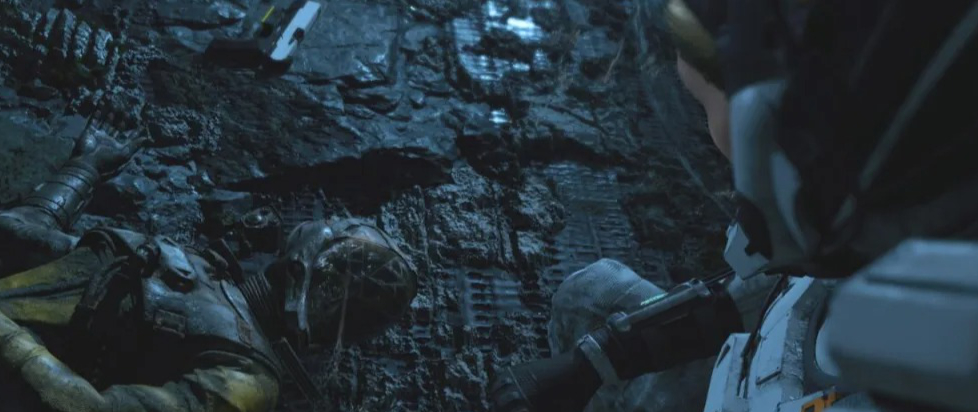
Every Game is Happy Death Day

This column is a reprint from Unwinnable Monthly #161. If you like what you see, grab the magazine for less than ten dollars, or subscribe and get all future magazines for half price.
———
We are what we’re afraid of.
———
Author’s Note: I’ve written on a similar topic to this one before, on Sidequest.org. For some fun background and context, go find that article and see how my thinking has developed.
* * *
Death is scary. We know this, because it’s one of the few nearly-universal things that populates our horror media. Across scary films, books and games, the end goal of the main character is often simply to escape whatever scenario they’ve found themselves in alive. Death, beyond its avoidance being a core instinct for living things, also has emotional, philosophical and spiritual ramifications for a lot of people. What happens to us after we inevitably die is a source of anxiety for folks, and people often turn to various systems of beliefs to come to a secure answer. But at the end of the day, we have no verifiable proof that we continue existing in any form after our physical bodies cease to function, or what that existence looks like.
Videogames, with their very direct focus on death and rebirth as a normal part of play, are uniquely positioned to get us thinking about the horrors of our own mortality, as well as the possibility of a less-than-ideal afterlife. In most games, you simply die again and again until you figure out how to play that particular section – an interactive and horrific Groundhog Day. But there are two horror/horror-adjacent games that I think deal with this concept in a particularly interesting way: Returnal and Bloodborne. Both deal with death as a punishment for failure, and also structure the gameplay after death to reflect the consequences of that failure, but do so in slightly different ways. Both, though, are horrifying in a Sisyphean sense, because they set up the following idea: death is inevitable and characterized by loss, and it is furthermore not a release from the labor of life.
Let’s look first at Returnal, a member of the roguelike genre. In roguelikes, all death is (semi)permanent: every death in Returnal returns you to the start of the game, so you must attempt to complete the length of the game in a single run with very little margin for error. While you are never allowed to save your progress at any point during a run, sometimes games lets certain things carry over into your next run, such as a permanent upgrade to your character. It’s also made explicit in the narrative (as a key part of the story) that the main character is aware that they are dying over and over, and are being forced to re-live their attempts to escape this alien planet, perhaps forever. If you cock your head and squint even a little, there’s a pretty easy case to be made for Returnal painting a pretty compelling portrait of what Hell might be like.
The other game here that I think is really interesting is Bloodborne. Not quite a roguelike, because there are options to save throughout, Bloodborne also makes the player pay a high price for death – each death means the player loses all of the “blood echoes” they’ve accumulated since their last save, which means they’ve lost any ability to level up or purchase new equipment. The game does allow you one more life to go retrieve your blood echoes from the exact spot you died in, but if you die before you get there, they’re lost forever. While in Returnal, the death and continued trial itself is the punishment, Bloodborne demands near immediate improvement from the player in terms of raw skill if there is any hope of advancing your character and actually continuing the game. Players can easily get caught in a vicious cycle of dying at the exact same spot over and over, because to avoid that spot is to lose precious hard-earned currency. Another interesting potential portrait of Hell.
Something it would feel remiss not to note is that neither of these games engage in any meaningful way with difficulty scaling. The games are brutally hard by design, and death is not simply an inevitability but a common expectation. The games are both, in important ways, designed around death. Players are punished for dying, but death is also the game’s fundamental mechanic. If you never died in either game, the experiences would be short and largely unenjoyable, though the line between “enjoyable” and “frustrating” is admittedly razor-thin. But across these experiences, and all experiences in gaming more broadly, we see the horror of death’s uncertainty play out in our games.
———
Emma Kostopolus is an Assistant Professor of English at Valdosta State University. Online, you can find her nowhere, but check out her film reviews for Ghouls Magazine and her recent article for Computers and Composition Online. She’s also the co-author of Ace Detective, a murder mystery dating sim you can play at oneshotjournal.com.




